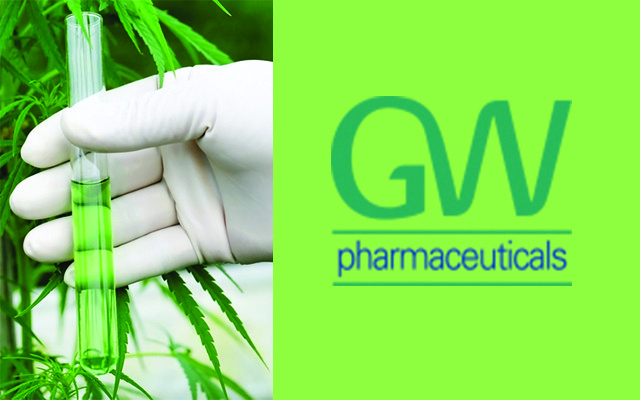LONDON,UK/CARLSBAD, Calif–GW Pharmaceuticals, makers of newly approved cannabis-based drug Epidiolex, have revealed the estimated annual cost of the medication, which treats two forms of extreme pediatric epilepsy, Lennox-Gastaut and Dravets syndromes.
On a call with investors last week the company said treatment would cost approximately $32,500 a year, which apparently was based on information from insurance companies and is comparable to other treatments for epilepsy, according to media reports.
News of the cost for Epidiolex comes with UK-based GW Pharmaceutical’s third quarter fiscal report to investors. The company also updated operational progress for the launching the medication.
“The recent FDA approval of Epidiolex represents a major medical advance for patients with Lennox-Gastaut Syndrome and Dravet syndrome. We anticipate rescheduling to be completed within 90 days of FDA approval and for product launch to take place in the fall”, GW’s Chief Executive Officer Justin Gover said in a statement. “In preparation for launch, we have now completed the hiring of our US sales organization and are engaged with patient organizations, physicians and managed care organizations/payors. This approval has been a transformative event for GW, not only opening a new chapter as a commercial-stage company, but also validating and reinforcing our world leadership in cannabinoid science, and the potential of our product pipeline.”
Epidiolex, which is the first cannabis-based medication approved by the U.S. Food and Drug Administration, was approved in June. Though Epidiolex does not contain THC (tetrahydrocannabinol), the psychoactive compound found in cannabis, it still faces a significant hurdle at the Drug Enforcement Administration before patients will be able to access the medication in U.S. pharmacies, which GW anticipates will happen in the fall.
The formulation does contain CBD (cannabidiol), which has been shown to have anti-seizure, anti-inflammatory, and anti-nausea properties, but is still considered prohibited by the DEA, as are all compounds derived from cannabis. Because cannabis is classified as a Schedule 1 narcotic, with the same status as hazardous substances including heroin and cocaine, the DEA will be required to reschedule Epidiolex before it can be sold in pharmacies in the U.S.
The DEA has until September 27 to make a decision on rescheduling, and the agency may opt to reschedule Epidiolex specifically, while cannabis and other cannabis products would remain prohibited.
The legal grey area for medicinal cannabis products is further complicated by the regulations around industrial hemp, which the majority of CBD is extracted from, and which is used in numerous products as a health supplement. Hemp is a variety of marijuana that contains low levels of THC and has many industrial uses.
While the DEA has said it will not prohibit products extracted from cannabis stems and seeds, hemp cultivation is still federally prohibited overall. The FDA has not taking an official position on the status of CBD as a supplement or drug, aside from approval of Epidiolex.
The Farm Act of 2018 contains legislation that will allow cultivation of industrial hemp in the United States for the first time since the early 20th Century. Congress is expected to approve the omnibus bill in September, with the enthusiastic backing of Senate Majority Leader Mitch McConnell (R-KN), who touts hemp as a super crop for farmers in Kentucky and other farming states.
In states that have legalized cannabis, however, some farmers have already started to grow hemp crops with hopes to supply the U.S. market. The U.S. is the largest global importer of hemp-derived products from countries where it can be grown legally, like China, France, and the Netherlands.











